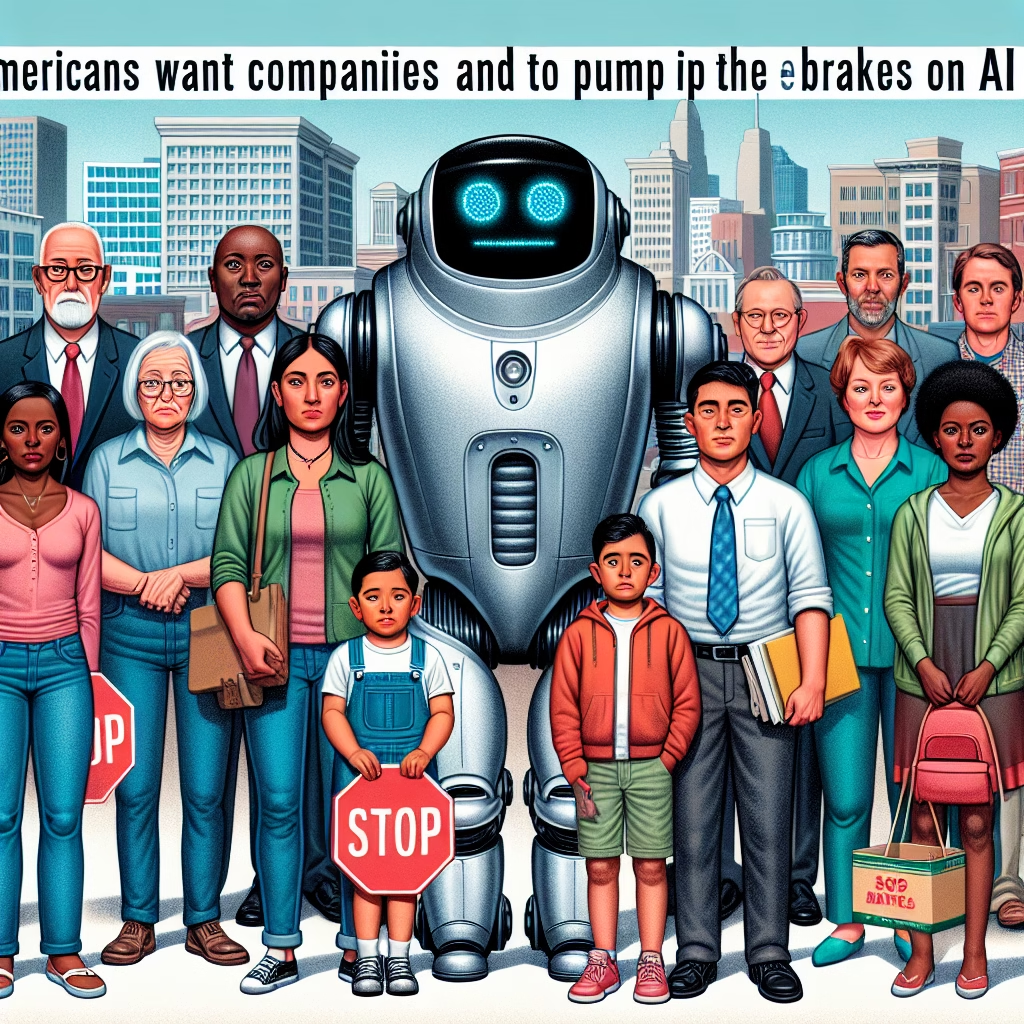Americans Want Companies to Pump the Brakes on AI
As artificial intelligence continues accelerating into the mainstream, public sentiment is leaning heavily toward caution. Despite the growing presence of AI technologies in tools like ChatGPT, self-driving cars, and facial recognition software, many Americans are expressing growing unease—and they want big corporations to slow down the AI race. A growing chorus of voices from the public, tech experts, and even lawmakers are asking: Are we moving too fast?
Public Concern Over the Unchecked Growth of AI
While tech companies are rapidly integrating AI into their products and services, a large portion of the American public is not entirely on board. According to a recent poll, a majority of Americans are wary of AI development outpacing the regulations and ethical considerations needed to ensure its safe and fair deployment.
- 61% of Americans believe companies should slow down AI development
- Only 6% think it should speed up
- The rest believe current AI development speeds are acceptable or are unsure
This sentiment cuts across political and demographic lines, showing that it’s not just technophobes or one particular party voicing concern, but a broad swath of the public. Even younger, more tech-savvy generations are feeling the heat about AI’s potential risks.
Why Are People So Concerned About AI?
AI technology has already shown its potential to transform industries such as healthcare, finance, and logistics. However, its rapid advancement without guardrails is raising alarms. Some of the top concerns include:
- Job Displacement: Automation powered by AI is threatening to replace millions of jobs, especially in customer service, transportation, and clerical roles.
- Bias and Discrimination: Many AI models have been found to reinforce racial and gender biases, often due to biased training data.
- Privacy Invasion: Facial recognition, data mining, and surveillance capabilities are expanding faster than privacy laws can keep up.
- Lack of Regulations: With minimal federal oversight, companies are left to self-police—often prioritizing profit over ethics.
These concerns are not hypothetical—many are already being observed in real-world applications. From biased hiring algorithms to AI-generated misinformation, the threats are becoming more immediate and tangible for consumers and policymakers alike.
Tech Companies Under Scrutiny
Big tech companies such as Google, Meta, Microsoft, and OpenAI are at the forefront of AI development. While they boast about their advances in AI-based products—like virtual assistants, image generation tools, and advanced language processors—there’s growing public skepticism about their intent and the potential consequences of their technologies.
For example, OpenAI’s ChatGPT has fascinated millions with its ability to write essays, code, and poems. However, educators and content creators have raised red flags about its use in plagiarism and spreading misinformation. Meanwhile, staff resignations and internal conflicts in tech companies reflect deepening ethical concerns around this sprawling technology.
Ethical Dilemmas in AI
AI ethics have become the battleground for corporate credibility. A number of ethical dilemmas are pushing people to ask for stronger boundaries:
- Autonomous decision-making: Should an AI be allowed to make decisions about hiring, sentencing, or healthcare treatments?
- Transparency: Do users know when they’re interacting with AI, and how it made its decisions?
- Accountability: If an AI system causes harm, who’s responsible—the engineers, the company, or the AI itself?
Without clear standards or public oversight, these issues could lead to dangerous outcomes. The demand for increased transparency and control over AI systems is being heard not just in academic circles, but among ordinary citizens who interact with these systems daily.
Policymakers Are Starting to Respond
The growing public concern has reached the ears of lawmakers. In the last year, we’ve seen an uptick in proposed legislation and hearings on Capitol Hill focused on AI ethics, surveillance, and accountability. The Biden administration launched an AI Bill of Rights, which outlines principles for safe and inclusive technology. While this is a positive step, critics argue it’s not enough.
- The EU has already moved ahead with the AI Act, a comprehensive legal framework governing the use of AI across sectors
- In contrast, U.S. regulations remain a patchwork of state laws and voluntary guidelines
Americans want more than just corporate promises—they want enforceable guarantees. Researchers and civil liberty organizations continue to push for stricter AI laws, stronger oversight bodies, and the creation of standardized ethical benchmarks for AI systems.
Balancing Innovation With Caution
It’s clear that AI is here to stay—and that it has the potential to improve lives in countless ways. But innovation without regulation can lead to unintended consequences. The conversation isn’t about halting AI development entirely, but ensuring it’s progressing at a responsible pace with adequate checks and balances.
What Needs to Happen Next?
To align technological progress with public sentiment, several steps should be taken:
- Federal Regulation: Establish national policies and laws regulating how AI can be developed and deployed
- Ethical AI Standards: Develop frameworks for responsible AI design, including fairness, transparency, and accountability
- AI Literacy Programs: Educate the public about how AI works and its societal implications
- Oversight Agencies: Create independent regulatory bodies with the power to audit and enforce AI compliance rules
Conclusion: A Call for Responsibility in the AI Age
As AI continues to reshape our world, the American public is clearly signaling that responsibility should take precedence over innovation for its own sake. Companies developing AI technologies need to listen. If they don’t, they risk losing trust—and possibly facing backlash from consumers and regulators alike.
Slowing down doesn’t mean stopping. It means taking a more thoughtful, measured, and inclusive approach to how we build and implement AI technologies. It means putting human values and safety first. As Americans are telling us loud and clear—it’s time to pump the brakes.
< lang="en">







Leave a Reply